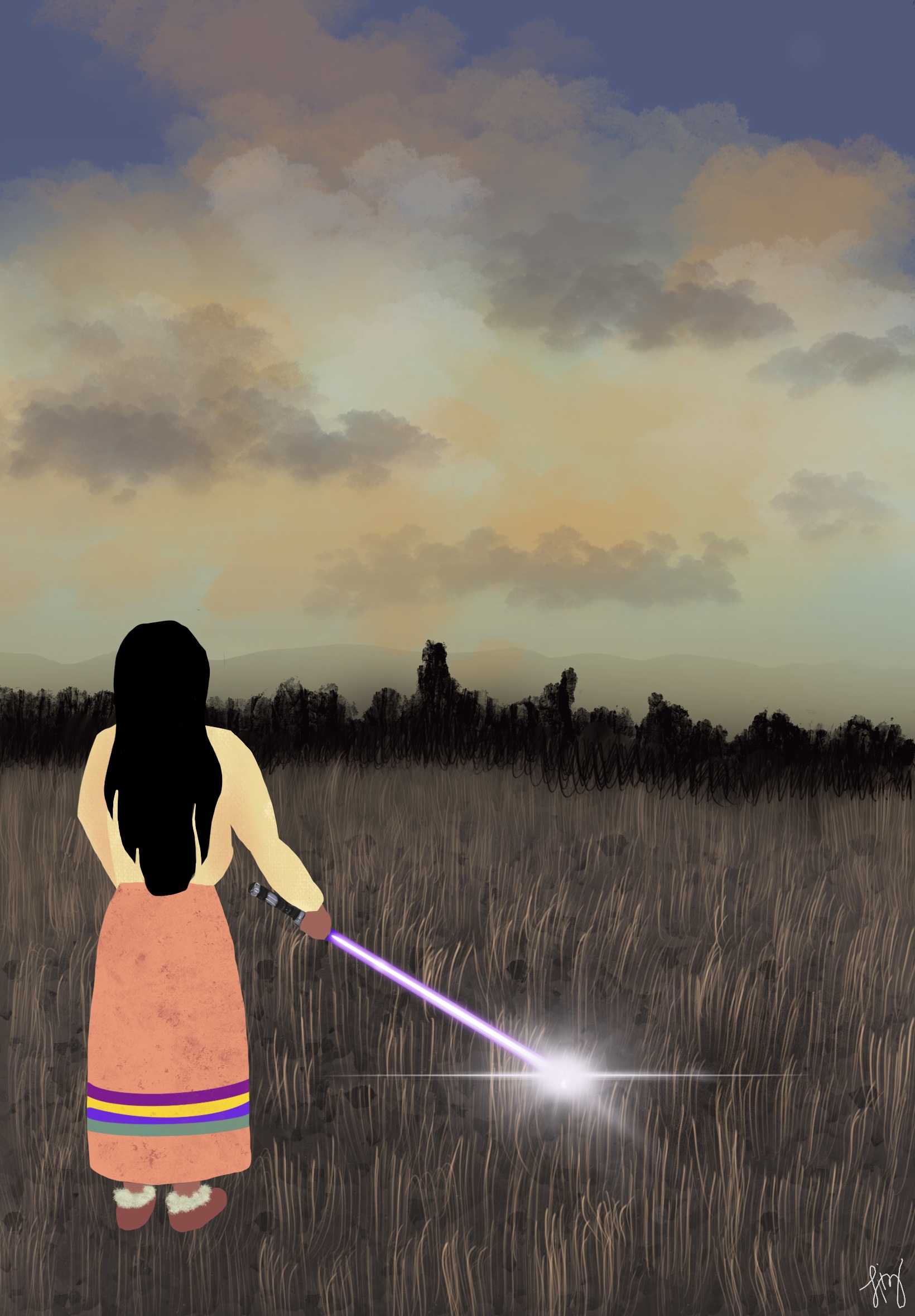
Our OG team have all contracted Covid in the last two months, a colleague has undergone surgery and lost a loved one, loss seems to be the theme of our weeks. The smoke from the fires make the city and waterways look like a mirage, and our lungs and sinuses unconsenting ash trays. Fall is the season of harvest, abundance, reciprocity and rationing for winter. For Threshold Philanthropy, that looks like conversations about money, budgets, reflecting on how the year has moved and how we want to be in relationship with each other, community, and the work we choose to engage in going into next year.
To actualize our values in the field of philanthropy means to challenge and transform the unchecked amount of power that is imbued in all levels of the philanthropic ecosystem. We are here to support the reclaiming and redistribution of power and resources that need to be returned to communities that have been purposely extracted from and left out. We know that our presence and imagination in any sector is a disruption; we can sense when people are sending non-verbal and verbal messages, and trying to suck all the air out of the room to let us know that we don’t belong. As marginalized identities, discomfort and rejection are not new feelings for us and being in these spaces of power and access are. With this access and power, we are actively co-creating with our partners as co-conspirators, with the understanding that beautiful lotuses grow in mud. It will be a messy and beautiful process as we move with radical honesty, transparency, humor, integrity, and grace.
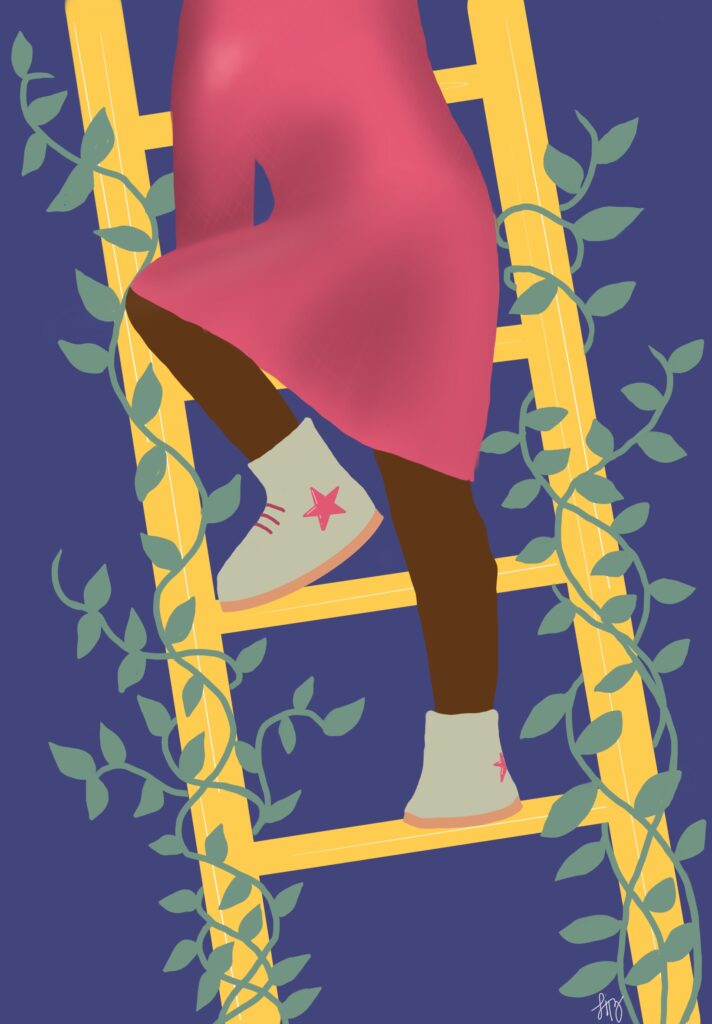
Threshold Philanthropy is 20 months old; our CEOs are both Black-queer-women, and we’re funded by one family that is currently building their wealth. This sector is based in legacy, clout, and generational wealth. Is it prepared to be inclusive of many modalities of philanthropy, and believing in the humanity, wisdom, and guidance of Black and Indigenous women? When we elect women of color leaders, how will we make sure that we are not continuing to hold them to standards that we would never expect and ask of our white colleagues? Talented and visionary Black and Indigenous people of color are in abundance, not an anomaly, we have pushed the needle on politics, culture, education, most often with community power, utilizing our unique genius and little else. We have nothing to prove, we just need the resources and the time to build. That is what makes Beth unique, a white woman with social and economic capital putting her trust, love, and resources in support of our purpose and dreams and not driving the agenda. Beth actively brings our team with her and makes sure that wherever she is and whoever she is with understands that our voices hold as much weight as hers. Her resources are our resources and that goes beyond just money, she shares her learnings, her networks, her home, and wants to deepen in relationship and healing with us.
What do you think of when you think of power?
What does power mean to you?
What are your earliest memories of feeling helpless/powerless?
What did you do and how did that feel?
What did you wish you could do?
What, if anything, could have prevented the situation from happening?
What did you learn?
I hope you gave yourself a moment to reflect and wrestle with the questions above and come to your own growing meaning and relationship with power. Our working definition today is by Alicia Garza, she says that power is “The ability to change your circumstances and the circumstances of other people”. Our colleague recounts a time that a teacher, without consent or context, decided to warn and shame her due to the experiences that this teacher had had with her two older brothers. Her brothers were not what you would call model students, which led this elder to assume the worst in our team member as well. That interaction left her feeling, small, ashamed, and angry. Someone who was supposed to motivate and mentor students labeling her based off the actions of her brothers. That feeling of being diminished, embarrassed and dismissed left residue. It has colored how she shares about her family and herself to this day. Power plays out in each interaction that we engage in willingly or not. It plays out in words, actions, and even narrative. It goes unsaid, unnamed, and normalized as dominant culture.
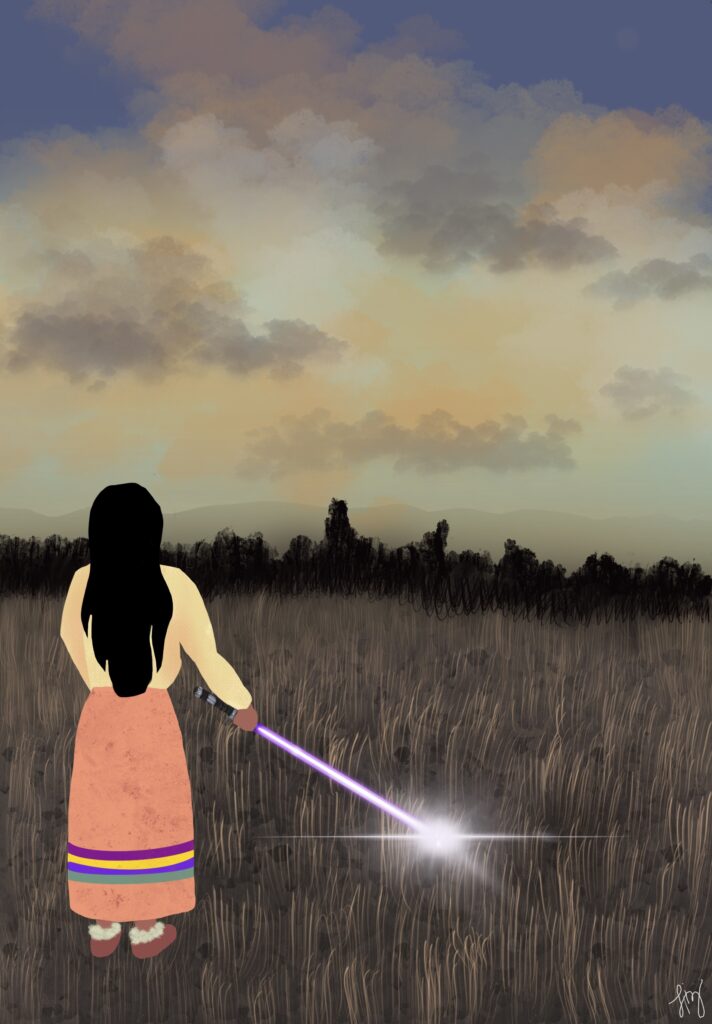
Power is not innately good or bad, it’s like gravity – it just is. It is in how we decide to wield that power that matters. My mentor Teddy McGlynn-Wright teaches about wielding power and equates it to having your own lightsaber. Everyone has one, and everyone needs to learn how to wield theirs with care, love, honesty, and responsibility. What makes that challenging is when a society has already elected who should be given power to wield and who should not. In this nation’s case, a small subset of white settler colonialists built a society that would make them superior to everyone else constructed on supremacy, scarcity, suppression, resource extraction and exploitation. The rest of us learn where we fit in the supremacy script, and that informs how we will be treated and in turn how we see and treat others. Ai-Jen Poo reminds us that “It is so often, the people with the least amount of power and resources who end up in the most impossible situations.” This set up of the hierarchy ladder, where individualism, privilege, oppression, dehumanization, and fear run through every law, institution, industry, and story, has made our country the highest in incarceration rates, poverty, illiteracy, violence, and health crises of the economically advantaged countries in the world.
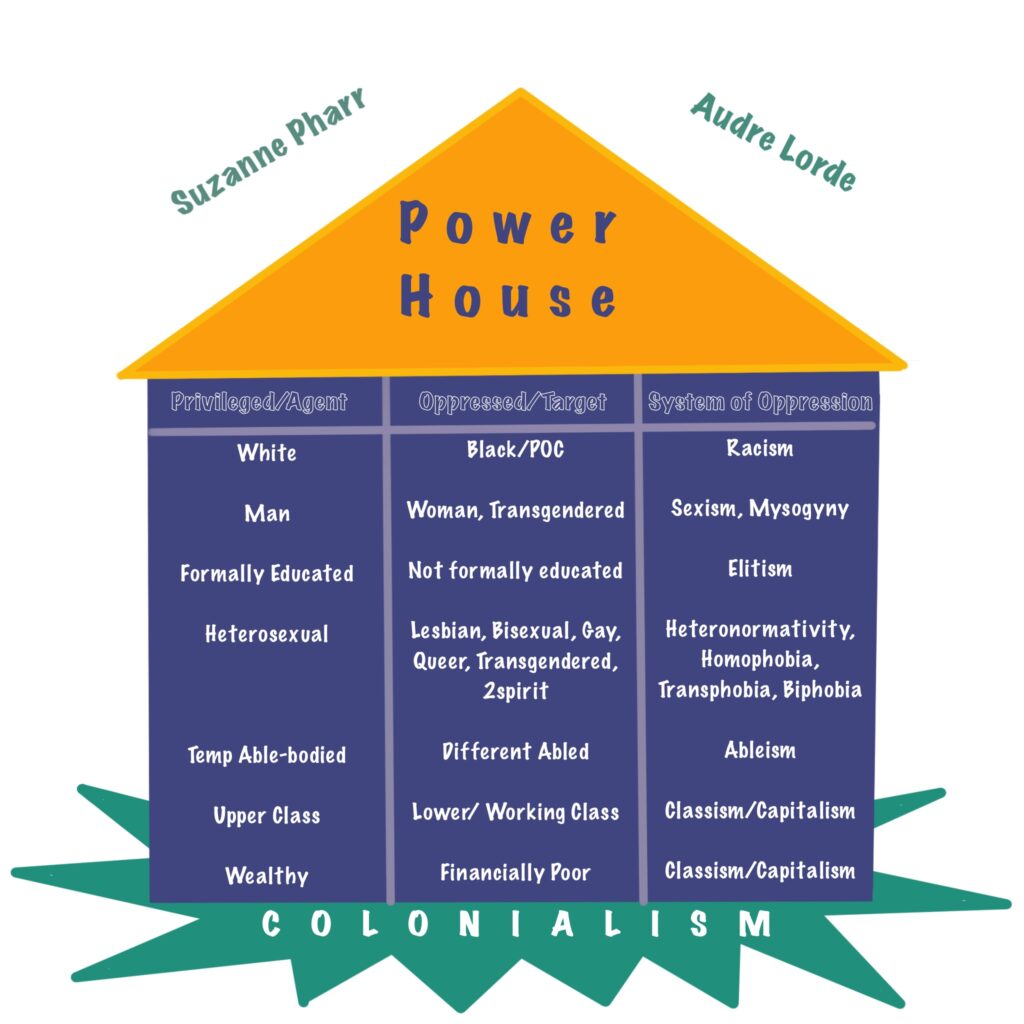
We are in community with collectives and organizations who are actively moving from the dominant hierarchy model and practicing different paths of leadership and power. They share with us how much their teams are have been struggling to step into their own power and new roles due to their whole life of indoctrination and practice of power-over, hierarchical models of leadership. Habits that ingrained do not change overnight, no matter how eager people are to do and be different. There is always an adjustment and transition period necessary for the changes to solidify into processes, habits, and practices. Our funded partners, vendors, consultants, and team members are witnessing, and naming that the beginning agitations of change and transition can oftentimes overwhelm their team members, and a large percentage of them will then fall back on the hierarchy model. The number of unknowns can be intimidating: what is the structure supposed to look like? How long will the process take? How will they know if they have done a good job? These unknowns, mixed in with the lack of practice in making decisions and trusting their skill, makes them double down on what they already know. Back to hierarchy and looking to their former supervisor to bottom line everything and still be the go between with other programs and people. The former supervisor is then put in a challenging position between stepping back into their previous role and wielding multiple lightsabers out of necessity, or releasing their teammate’s lightsaber, slowing down, and creating avenues for mentorship, access to resources, and clear processes for their teammate to exercise their power and autonomy with dignity and direction.
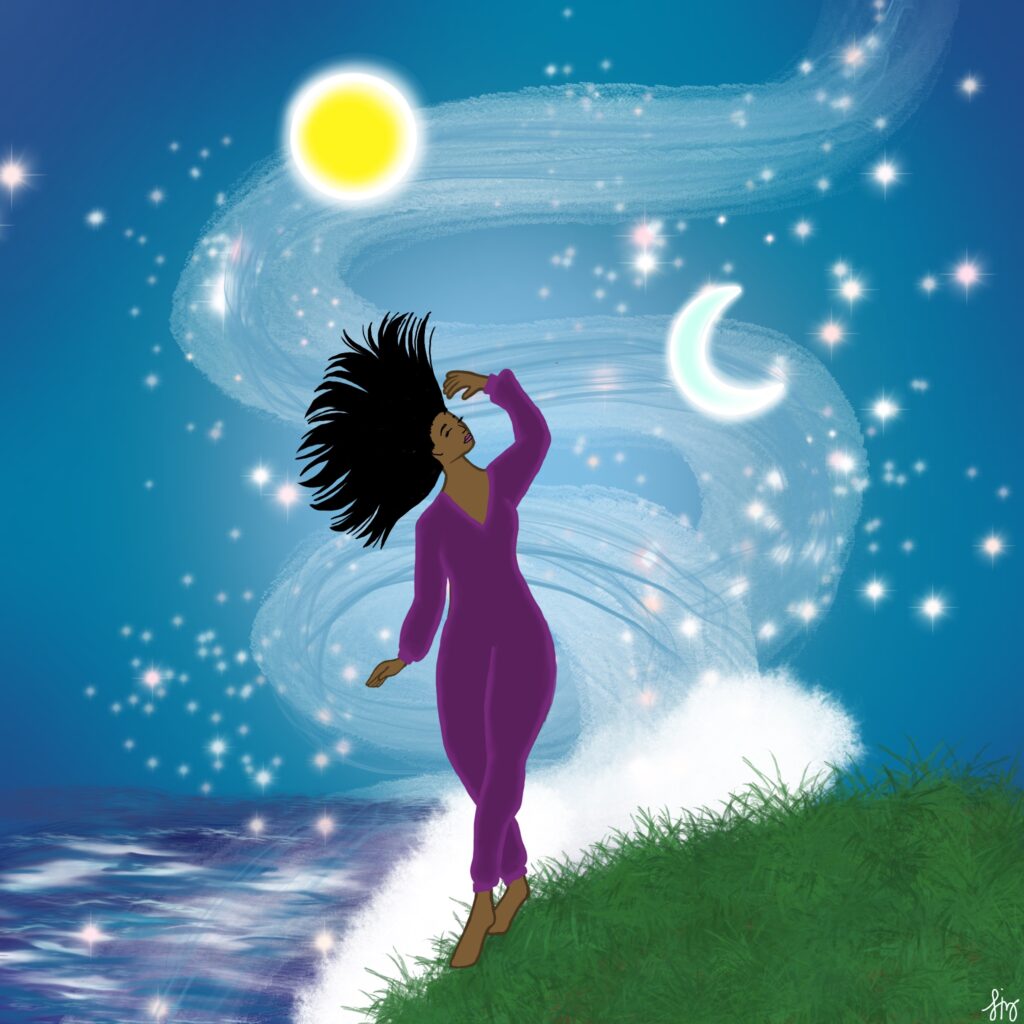
Ai-Jen Poo asks, “Is there room amongst the woke for the waking?” Trusting our innate power to wield our lightsabers with accountability and compassion can seem daunting and insurmountable, knowing our history and conditioning. It can feel like you’ve been asked to run seven football fields of clovers and find a four-leaf clover. One person alone cannot change it all, we are asking and challenging you (and ourselves) to find your small part of the whole and transform just that. We will all make mistakes and need each other to make it through and worthwhile. If power is fundamentally individual and collective energy that fuels our creative will and sovereignty to change our circumstances and the circumstances of others. Let us, with humility, remorse, and accountability return the power that is not ours back to the rightful owners, stewards, and land. Here are some small steps we can make towards repair and restoration – look around and see whose voices are missing and why, and working toward inclusivity to build a world where we are all taken care of. Question and reflect on the nature and consistency of our relationships and support them to be healthier to create an environment of belonging. Create more moments for connection, celebration, and generosity, to strengthen and heal ourselves, our ecosystems, and our lineages. There is so much more to share about our learnings on power, this is just the beginning. Our ask is that you warm up those lightsabers, continue the conversation, and practice your moves rooted in dignity and belonging as we learn beside you!
“Together, we can change the logic of power in our country — to fundamentally disrupt the hierarchy of human value that defines our culture, our politics and our economy.” Ai-Jen Poo
- Artwork is by our very own Liz Rideau!
- Powerhouse is by Teddy McGlynn-Wright at intheworks
- Got Power playlist


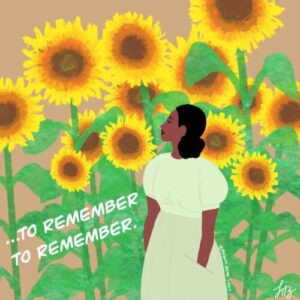
Leave a Reply